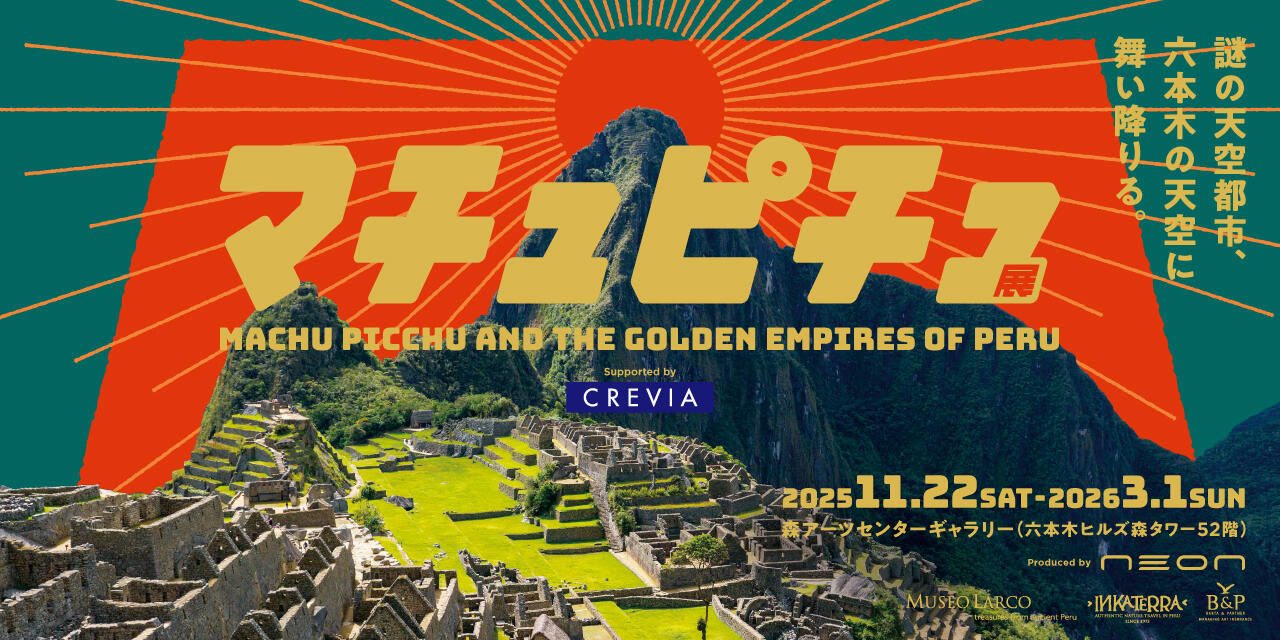Symposium Jointly Organized by Mori Art Museum and Hyundai Tate Research Centre: Transnational
“From Alexandria to Tokyo: Art, Colonialism and Entangled Histories”
Japanese-English simultaneous interpretation available
* All panel sessions will be livestreamed via YouTube.
The video documentation of the four-part online symposium over two days are now available on YouTube for free.
Panel 1: https://youtu.be/x_W6NbUs0mA
Panel 2: https://youtu.be/A1_5RjKN5Vw
Panel 3: https://youtu.be/6wIcqe1RieM
Panel 4: https://youtu.be/wRLwWyd0Hbs
* Booking is not required.
* This program will take place online, using Tate Talks’ official YouTube account. Click the link below to tune in.
Day 1: Thursday, December 3, 2020
Panel 1: 18:00-19:30 (JST) / 9:00-10:30 (GMT)
Panel 2: 20:00-21:30 (JST) / 11:00-12:30 (GMT)
Japanese https://youtu.be/eTUnlYInNwQ
English https://youtu.be/UlK7Fug-s6s
Day 2: Friday, December 4, 2020
Panel 3: 18:00-19:30 (JST) / 9:00-10:30 (GMT)
Panel 4: 20:00-21:30 (JST) / 11:00-12:30 (GMT)
Japanese https://youtu.be/P7DHz0bBu9c
English https://youtu.be/OEPjm8CcyJQ
You can download the programs of the symposium (all in PDF format) from the following:
- Participants Profile Tate x Mori_symposium_bio.pdf
- Abstracts [DAY 1] Tate x Mori_symposium_day1_abstract.pdf
- Abstracts [DAY 2] Tate x Mori_symposium_day2_abstract.pdf
The symposium aims to decenter present-day debates on art and colonialism. While European colonialism and imperialism have become important themes in contemporary museum, academic discourse and exhibition practice, artistic perspectives on non-European colonialism and experiences of domination remain relatively understudied. This is so despite the complex creations and legacies these experiences have and continue to generate. Moreover, little comparative analysis has been done in this regard, especially as pertaining to art. The symposium therefore aims to shed light on the multiplicity of colonialism spanning from North Africa to East Asia and their roles in the constitution of the modern world. In particular, it seeks to explore art- and artist-focused case studies that examine undisciplined histories, memory building and the conflicting, multivalent narratives these have generated.
The pressures of postwar and post-independence reconstructions and nation-building have long concealed the complex and contested relationships between artistic connections or exchanges, and the workings of domination and inequality. The symposium will thus question whether the formation of avant-garde artistic networks connected at an international level can be separated from the hierarchical conditions under which colonial connections were formed. Second, it will assess how the reevaluation of colonialism raises a challenge as much to Eurocentric art histories as to nationalist ones, which have arguably contributed in drawing new separatist and exclusionary lines.
The outbreak of the new coronavirus has further exposed the socio-economic inequalities that are felt along various aspects around the world. By engaging critically with the histories of colonialism, which have undoubtedly impacted the current development, we hope that this symposium will lead us to a better understanding of the challenges we collectively face today.
- Conveners
- Kataoka Mami (Director, Mori Art Museum), Sook-Kyung Lee (Senior Curator, International Art, Hyundai Tate Research Centre: Transnational, Tate), Devika Singh (Curator, International Art, Tate), Hayashi Michio (Professor, Sophia University), Christian Kravagna (Professor, Academy of Fine Arts Vienna)
- Dates
- Thursday and Friday, December 3-4, 2020
- Schedule
- Day 1: Thursday, December 3, 2020
Panel 1: 18:00-19:30 (Tokyo) / 9:00-10:30 (London)
Panel 2: 20:00-21:30 (Tokyo) / 11:00-12:30 (London) - Day 2: Friday, December 4, 2020
- Panel 3: 18:00-19:30 (Tokyo) / 9:00-10:30 (London)
Panel 4: 20:00-21:30 (Tokyo) / 11:00-12:30 (London) - Speakers
- Panel 1: Between Nationalism and Cosmopolitanism
Moderator: Devika Singh
Innami Fusako (Assistant Professor at School of Modern Languages and Cultures, Director of Research at Durham University)
“Sensory Topography: Re-graphing the Bodies in Inter-war Shanghai”
Helena Capkova (Associate Professor in Art History at Ritsumeikan University, Visiting Lecturer at Waseda University)
“Japanese Traditional Arts as the Connecting Link: Transnational Analysis of the Network of Japanese Ultranationalists and Indian Anti-Colonial Revolutionaries”
Sanathanan Thamotharampillai (Senior Lecturer in Art History at University of Jaffna, Co-Founder of Sri Lanka Archive for Contemporary Art, Architecture, and Design)
“Indian Nationalism and the Making of ‘Modern’ in Sri Lankan Art” - Panel 2: The Cold War, Liberation, and Modernism
Moderator: Christian Kravagna
Nadia Radwan (Assistant Professor of World Art History, Institute of Art History, University of Bern)
“Shifting Art Constellations and the Non-Aligned Movement in Egypt”
Maria Mileeva (Associate Lecturer at the Courtauld Institute of Art)
“Imagined Solidarities: Soviet Involvement in the Struggle for Progressive Realist Art in Post-Colonial Africa”
Zeigam Azizov (Artist, Philosopher)
“Russification Project”
Nobuo Takamori (Curator)
“The Impossible Empire: the Global South, the Cold War, and the Republic of China in the Taiwanese Art Collection” - Panel 3: Multiplicity of the Postcolonial
Moderator: Hayashi Michio
Ho Tzu Nyen (Artist)
“Dictionaries and Aporias - Some Notes on Southeast Asia and the Kyoto School”
Yamamoto Hiroki (Assistant Professor of Graduate School of International Art Creation, Tokyo University of the Arts / Part-time Lecturer, the Department of Arts and Crafts, Kyoto University of Art and Design)
“Taeko Tomiyama as ‘Returnees’ Art’: Is East Asian Postcolonial Art History Possible?”
Ma Jung-Yeon (Senior Assistant Professor at Meiji University, Visiting Scholar at Tama Art University, and Tokyo Correspondent of Wolganmisool, Korea)
“Many Voices”
Odawara Nodoka (Artist, Critic)
“Why Sculptures are Erased: ‘The Other Tokyo Tribunal’ as a Clue” - Panel 4: Against the Neo-Colonial
Moderator: Ming Tiampo (Professor of Art History and Director of the Institute of Comparative Studies in Literature Art and Culture, Carleton University)
Ana Bilbao (Lecturer in Modern and Contemporary Art at University of York)
“Where is My Land?: Cambodia’s Question in the Wake of Singapore’s Neo-Colonial Endeavours”
Pamela Corey (Lecturer in South East Asian Art at SOAS, University of London)
“From My Mouth Alone: Spectres of Communication and the Materialization of Postcolonial Voices in Vietnam”
Fiona Amundsen (Senior Lecturer in Photography and Art Theory at Auckland University of Technology)
“Opening Our Ears: Listening to Japanese WWII Imperialist Histories through Contemporary Filmic Works”
Wenny Teo (Lecturer in Modern and Contemporary Asian Art at the Courtauld Institute of Art)
“From the Frontlines of the ‘Belt and Road’: Embedded Ethnography and Artistic Agency in Fang Di’s Videos of Papua New Guinea and Bougainville” - Organizers
- Mori Art Museum, Hyundai Tate Research Centre: Transnational
- In Collaboration with
- Institute of Comparative Culture, Sophia University
- Our Requests to Viewers
- - Please refrain from taking audio/video recordings or photos of the session contents, including those of the participants, unless you are given permission to do so during the session.
- Participants who exhibit unruly behaviors may be asked to leave the session.
Notes
- Please note that contents are subject to change without prior notice.





